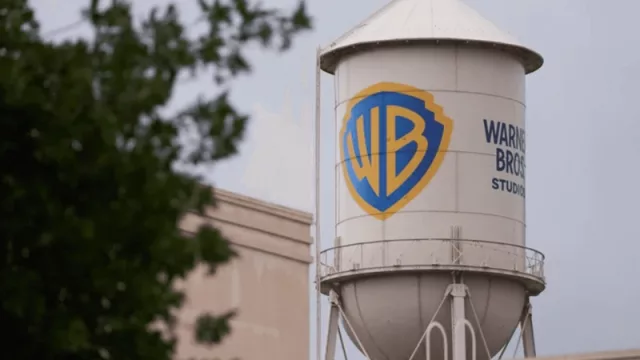The Corporate Mistake Being Drastically Reversed Since 2024
The exclusive focus on young, tech-savvy talent has led to significant hiring errors. Many companies, particularly in the tech sector, have prioritized technical training over soft skills. This bias has resulted in a workforce that, while highly skilled in technical abilities, lacks the emotional intelligence and work discipline necessary to thrive in collaborative environments.
The deficiency in communication skills and the inability to navigate complex interpersonal situations have begun to resonate within organizations. Recent cases from companies like Nike and Starbucks have demonstrated that the value of experience and maturity in the workplace is undeniable. Both organizations have revisited their hiring strategies, recognizing the need to integrate talent over 50 into their teams, especially in managerial roles.
-
It is crucial to recognize the value of the experience and skills that older professionals can bring to the workplace and to promote an inclusive environment that celebrates generational diversity.
-
IG: @infonegociosmiami
The Search for Diversified Talent
This revision in hiring strategy reflects a broader trend toward valuing generational diversity in the workplace. Companies are now seeking to balance their teams with individuals who not only possess technical skills but also have a solid foundation in general competencies and social skills. This shift not only enhances team dynamics but also fosters a more inclusive and collaborative work environment.
-
Furthermore, studies have shown that intergenerational teams tend to be more innovative and effective. The combination of fresh ideas from younger employees and the wisdom of seasoned professionals creates a synergy that boosts creativity and problem-solving capabilities.
In a constantly evolving labor market, it is crucial for companies to reevaluate their generational biases and prejudices. The integration of professionals of diverse ages not only enriches the workplace but also enhances the organization’s adaptability and resilience. Experience and youth can coexist and complement each other, creating a more robust work ecosystem ready to tackle future challenges. Ultimately, the key lies in recognizing that each generation has something valuable to offer, and only by uniting these talents can we build truly exceptional teams.
Why CEOs and Heads of Culture (the new Co-CEOs highly valued in excellence-driven companies) are Returning to the Ranks of Those Aged 50 and Above, Particularly Generalists
Adaptability and Versatility
-
Adaptability and Versatility
Companies are actively seeking employees who can swiftly adapt to market shifts and emerging technologies. Professionals equipped with a diverse skill set tend to be more versatile, enabling them to assume various roles within the organization.
2. Emotional Intelligence
Conversational skills and emotional intelligence are increasingly valued. Leaders and employees who can communicate effectively, manage conflicts, and foster positive relationships contribute to a healthy and productive work environment.
3. Decision-Making Experience
Workers with greater experience have a broader perspective on problems and can make more informed decisions. Their accumulated knowledge allows them to anticipate challenges and find effective solutions.
4. Mentorship and Talent Development
Experienced employees not only bring their own knowledge but can also play a crucial role in mentoring younger staff. This helps create a culture of continuous learning and development within the organization.
5. Focus on Organizational Culture
Companies are recognizing the importance of building a strong organizational culture. Talents with conversational competencies are essential for fostering collaboration and teamwork, which are fundamental for a positive culture.
6. Diversity of Thought
Organizations are valuing the diversity of thought that comes with the inclusion of different generations. The blend of experiences and approaches can lead to greater innovation and creativity.
7. Talent Retention
Companies that value and promote a diversity of skills and experiences tend to have higher talent retention rates. Employees feel more valued and motivated in an environment where their abilities are recognized.
8. Evolution of the Labor Market
The current labor market is experiencing rapid changes, and companies need talents who can navigate this new reality. General competencies and experience are essential for facing today’s challenges.
9. Focus on Sustainable Results
Organizations are prioritizing long-term sustainable results over quick profits. Experienced professionals tend to have a more holistic view and can contribute to strategies that benefit the company in the future.
10. Talent Crossing (Technical yet Generalist)
Organizations need the ability to see beyond the obvious, to manage multi-faceted qualitative and quantitative evaluations, and to distinguish and connect the specific with the general.
These reasons reflect a growing trend in the business world toward valuing a more diverse professional profile with greater competencies, which in turn promotes a more inclusive and effective work environment.
-
The phenomenon of generational bias in the workplace is a relevant and complex issue that has been addressed in various works and films. A notable example is the movie The Intern (2015), starring Robert De Niro and Anne Hathaway. In this dramedy, De Niro plays Ben Whittaker, a retiree who becomes an intern at a fashion startup led by Hathaway. The film illustrates how the experience and wisdom of older generations can be valuable in a workplace dominated by youth and innovation. Ben, despite his age, brings a unique perspective and interpersonal skills that enrich the company culture.
Books and Movies Addressing This Vital Topic in Business
Books:
-
The Age Advantage: How to Benefit from the Coming Generational Shift in the Workplace by D. A. Whitfield: Explores how companies can leverage generational diversity.
-
Generations at Work: Managing the Clash of Veterans, Boomers, Xers, and Nexters in Your Workplace by Ron Zemke, Claire Raines, and Bob Filipczak: Analyzes the different generations in the workplace and how to manage them.
-
The 100-Year Life: Living and Working in an Age of Longevity by Lynda Gratton and Andrew Scott: Discusses how longevity is changing our lives and careers.
Movies:
-
The Last Ride (2018): A drama that explores the friendship between a young person and an elderly man, highlighting the importance of intergenerational connection.
-
Up in the Air (2009): While not exclusively focused on generational bias, it addresses modern workplace dynamics and the relationship between youth and experience.
Speakers:
-
Simon Sinek: Known for his talks on leadership and teamwork, Sinek also addresses the importance of integrating different generations in the workplace.
-
Liz Wiseman: Author of Multipliers, she has spoken about how leaders can leverage the talent of all employees, regardless of their age.
-
Subscribe for free to receive the most strategic, agile, and valuable insights at: https://infonegocios.miami/suscribite-al-newsletter
Infonegocios NETWORK: 4.5 million Anglo-Latinos united by a passion for business.
Subscribe for free to receive the most strategic, agile, and valuable insights at: https://infonegocios.miami/suscribite-al-newsletter
Contact Infonegocios MIAMI:
[email protected] or [email protected]












Tu opinión enriquece este artículo: